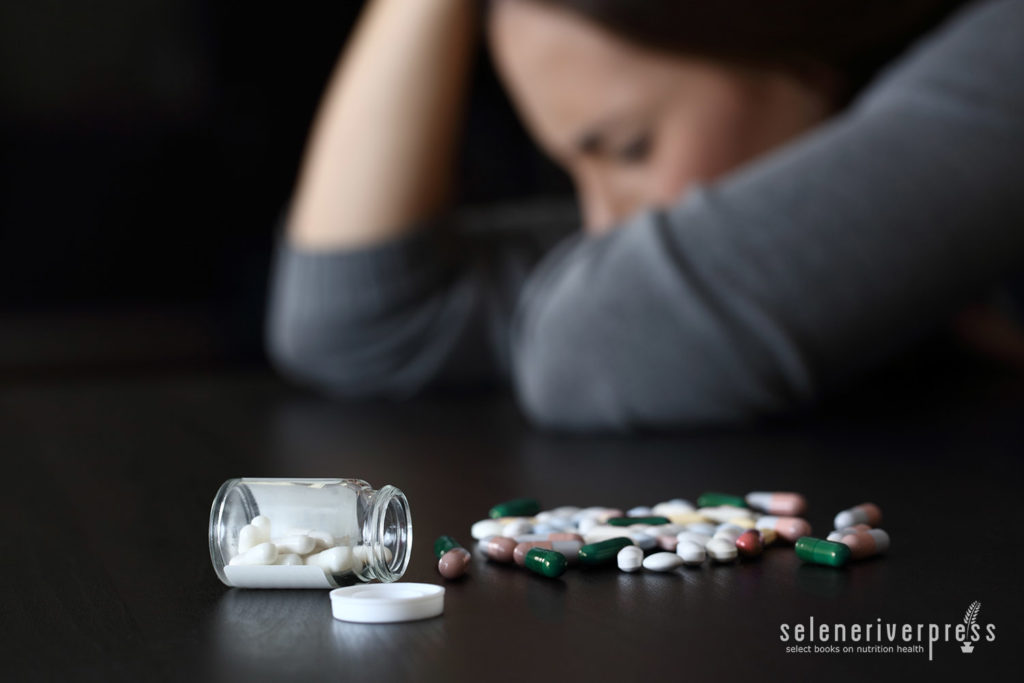It’s easy to blame ourselves for addiction, but that oversimplifies the problem. Whether you’re addicted to alcohol, nicotine, drugs, or food, it can seem inescapable when you’re currently caught up in the vicious cycle. Yet failure or relapse is not inevitable. If you recognize that you have a problem, you can take your first steps toward recovery by educating yourself and seeking help. In addition to seeing a professional such as a behavioral therapist, psychiatrist, addiction counselor, or a support group, you can also further your goal of kicking an addiction by aiming even higher. Don’t just take steps to beat your addiction—you can also use your journey of recovery as a pathway to better overall health and happiness.
Healthy Habits to Help Beat Addiction
Healthy habit-forming behaviors can make it easier to overcome addiction in the present while transforming your health for the future. The importance of habit-forming behavior and routines in transitioning towards a healthy lifestyle is now widely recognized by psychologists and other addiction therapists. Following are some of the healthiest habits that will give you both the physical and mental strength to overcome addiction.
Eat Better to Feel Better
Unless you’re specifically dealing with a food addiction, you’ve probably overlooked the importance of nutrition in recovery, no matter the type of addiction. In fact, this issue is only now being recognized. Studies show that malnutrition and nutritional deficiencies have a high correlation with addiction. When you consider the fact that small deficiencies of micronutrients can increase the risk of depression, anxiety, and fatigue, it’s no surprise that proper nutrition is vital to lower the risk of relapse.
While it’s advisable to consult a dietitian for a personalized eating plan, you can follow a few simple rules for more balanced nutrition. High levels of deficiency and stress can lead to digestion issues. Cut back on the processed foods and avoid those foods that make you more likely to binge eat. Consume more whole foods, eat a range of fresh produce, and include every major food group. Colorful fruits, leafy greens, legumes, eggs, nuts, seeds, and fatty fish are the main foods that you should focus on.
Get Active
The benefits of exercise for physical and mental health are already well established. When it comes to recovery and prevention of relapses, exercise is just as beneficial. As your body adjusts to life without dependence, you may experience unbearable withdrawal symptoms. Stress, anxiety, poor sleep, fatigue, and mood swings all make it easier to falter and give in to temptation. But exercise can help counter this risk as it triggers the release of endorphins, which lower levels of stress and anxiety. Researchers have found that aerobic exercise actually alters the mesolimbic dopamine pathway. This may have huge implications for addiction recovery as it could help normalize dopamine signaling, undoing much of the damage caused through chronic substance abuse.
Less Stress, More Fun
Stress is unavoidable for most of us, and temporary, occasional stress is natural and healthy. It’s when stress levels remain elevated for a long period of time that things become problematic. Chronic stress raises your risk of stress related disorders and is also a major trigger for addiction. A healthy diet and plenty of exercise will help lower stress levels. In addition, you should make a conscious effort to confront and challenge your particular stressors. Limit your exposure to stressful situations and learn to take breaks in which you use relaxation techniques to calm down. Meditation and deep breathing exercises are particularly effective at lowering stress and promoting a sense of well-being. You can also take up other activities that help you relax, such as walking at the park, swimming, listening to music, chatting with friends, or enjoying a hot soak.
Sleep It Off
Sleep deprivation is associated with various lifestyle disorders, and it’s one of the most pervasive problems society faces today. It’s also closely linked to addiction, with studies showing that sleep disorders are up to ten times more likely to affect individuals who suffer from addiction. Sleep is an essential requirement for both physical and mental well-being. Inadequate or irregular sleep is likely to exacerbate withdrawal symptoms as it raises stress levels and increases the risk of anxiety disorders and depression. One study looking specifically at the risk of relapse highlighted the role of sleep disturbances. Relaxation techniques, exercise, and behavioral conditioning along with a regular sleep routine can help improve quality of sleep. Getting adequate sleep not only lowers the risk of relapse but also improves other parameters of health and improves your overall quality of life.
When you’re trying to kick an addiction, cultivating healthy habits is effective for many reasons. They help lower the risk of relapse while reinforcing a sense of self-care and concern for the body, which is a fundamental step in recovery. After all, eating healthy, exercising, relaxing, and sleeping well aren’t just helpful for addiction recovery—they’re also essential for better health.
Images from iStock/AntonioGuillem (main), Koldunova_Anna (man sleeping), Rawpixel (woman).




